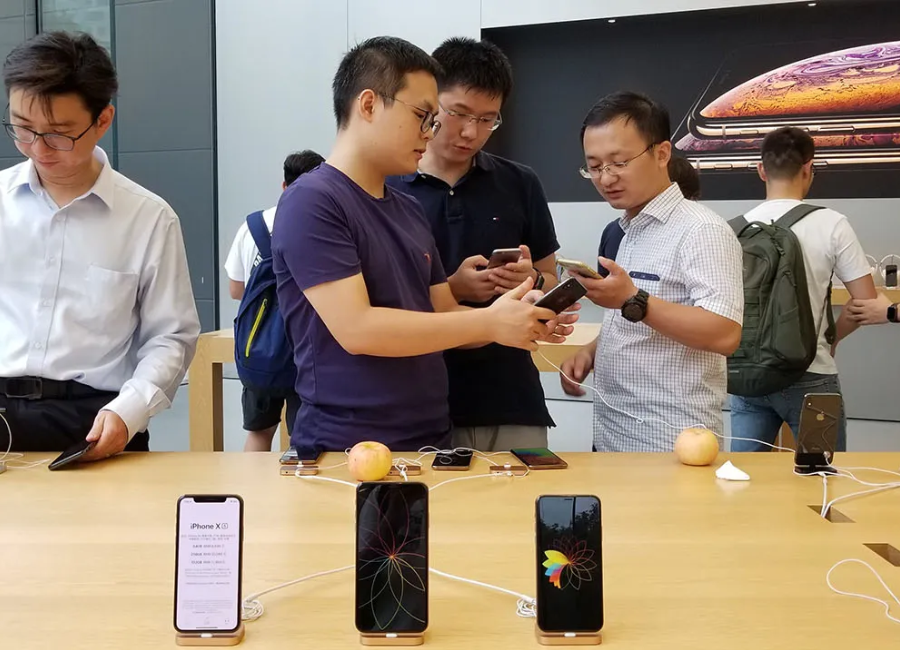China is reportedly planning to expand its ban on the use of iPhones in sensitive government departments to include government-backed agencies and state-owned companies. This move poses increased challenges for Apple Inc. in its most significant foreign market and global production base.
According to sources, various agencies have already begun instructing their staff not to bring iPhones to work, confirming earlier reports from the Wall Street Journal. Beijing is now considering extending this restriction more broadly to numerous state-owned enterprises and other government-controlled organizations. This potential expansion marks the culmination of a prolonged effort by China to reduce reliance on foreign technology in sensitive environments, aligning with its broader objective of decreasing dependence on American software and circuitry.
If the ban is implemented, it could have far-reaching consequences for Apple, impacting its position in a market that contributes about one-fifth of its revenue. Additionally, China is where Apple manufactures the majority of its iPhones through expansive factories that employ millions of Chinese workers.

The precise scope of the ban remains uncertain, and there is currently no formal or written directive. State firms and organizations may vary in how strictly they enforce such restrictions, with some prohibiting Apple devices from the workplace while others may disallow their use entirely.
While Apple has historically been viewed as relatively secure in China from government restrictions due to its relationship with Beijing and its economic significance, recent developments raise questions about whether the government is changing its stance.
As of now, Apple has not responded to requests for comments on the matter. The State-Owned Assets Supervision and Administration Commission and the State Council Information Office, when contacted, did not provide responses.
In response to this news, Apple’s shares fell by 2.9% in New York, following a 3.6% decline the previous day, marking their most substantial single-day drop since August 4. European chipmakers, including Apple supplier STMicroelectronics NV, also experienced declines.
Despite growing resentment of American efforts to curb China’s technology industry, Apple continues to enjoy widespread popularity in China. iPhones remain among the country’s best-selling smartphones and are prevalent in both the government and private sectors.
The potential ban on iPhones coincides with China’s intensified efforts to develop domestic technology that can rival or surpass American innovation. Recently, the release of a Huawei smartphone featuring an advanced made-in-China processor garnered attention on both sides of the Pacific, with Chinese state media celebrating it as a triumph against US sanctions.
China has been discouraging the use of foreign devices in sensitive agencies for some time, especially as part of a broader campaign to reduce reliance on US technology. In 2022, Beijing mandated central government agencies and state-backed corporations to replace foreign-branded personal computers with domestic alternatives within two years, representing a significant push to eliminate key overseas technology from sensitive organs.
Amidst deteriorating US-China relations, Apple remains heavily reliant on China, serving as both a manufacturing partner and a critical market for its products. CEO Tim Cook has emphasized the symbiotic nature of this relationship, even as geopolitical tensions persist. China played a crucial role in Apple’s recent financial results, helping offset a generally sluggish period.
As Apple prepares to unveil its latest iPhones, the potential ban in China adds a layer of complexity, raising concerns about the impact on sales in its most significant market during the upcoming holiday quarter, traditionally the company’s peak sales period of the year.







